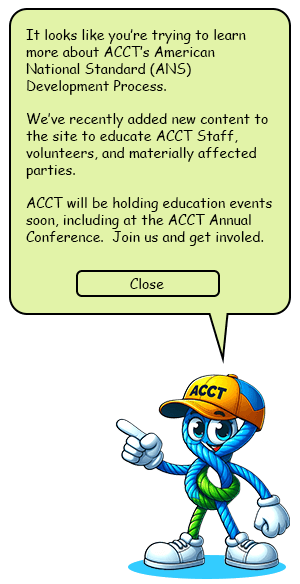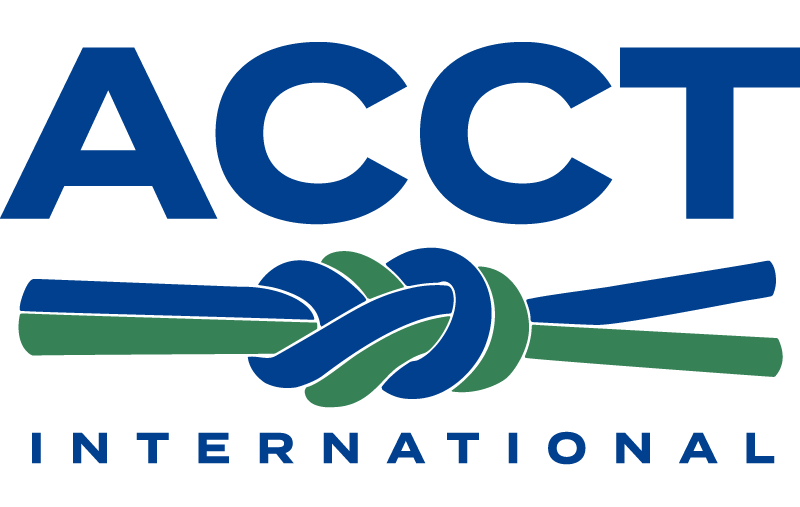ACCT Standards
ACCT International (ACCT) develops, refines, and publishes standards for the design, installation, maintenance, and management of challenge courses. Founded in 1993, ACCT was responsible for creating the first challenge course industry standards in 1994. ACCT has continued to refine its standards development process and publish new standards to meet the needs of the evolving challenge course, aerial adventure park, canopy tour, and zipline markets.
In 2006, ACCT became an ANSI Accredited Standards Developer (ASD) and has maintained that status. This designation indicates that ACCT has an accredited standards development process that is open, fair, and allows for equal representation of materially affected parties.
ACCT Standards are currently available in English, Spanish, and Simplified Chinese. Only the English version is designated an American National Standard (ANS) by ANSI. All other versions are translations.
PURCHASE ACCT STANDARDS
ACCT MEMBERS
A digital license for the current American National Standard is available to ACCT Members as a member benefit. The benefit is extended to sub-accounts of organizational members.
NON-MEMBERS
Purchase digital and print versions of the current American National Standard, and some older versions are available at the ACCT store.
RESOURCES
NEXT STEPS
ACCT STANDARDS DEVELOPMENT RESOURCES
- ACCT’s Standards Development Process. Learn more about ACCT’s ACCT Standards Development Process. Digital resources, answers to Frequently Asked Questions (FAQs), and information to help you learn when and how to get involved.
- Current ANS Development Project. Learn more about ACCT’s current Standards projects.
- ACCT Board of Directors. View roster, upcoming meetings, ACCT guiding documents, and minutes from previous meetings; register to attend an upcoming Board Meeting.
- ACCT Consensus Body. View roster of the ACCT Consensus Body, view meeting schedule and minutes, register to observe a meeting, and apply to be a Consensus Body Member.
- ACCT Accredited Procedures. Download Procedures for Organization, Development, and Maintenance of Challenge Course Standards by the Association for Challenge Course Technology (ACCT), ACCT’s governing document for ANS Development.
- Frequently Asked Questions. A collection of the Standards FAQs from the pages in this section.
- ANSI Essential Requirements. View and download ANSI Essential Requirements.
- Understanding Standards Development Definitions and Acronyms. A guide to understanding common terminology, abbreviations, and acronyms found in the Standards Development Process.
- Contact the ASD. Submit requests for official interpretation, comments on a draft project, ideas for projects or revisions, and unsolicited feedback, suggestions, or errata.
Disclaimer. ACCT has created the following resources on its American National Standards (ANS) Development Process for educational purposes only. It is not intended to be policy or procedure, or to represent the sole way ACCT may develop standards. ACCT's ANS Development Process is guided by the ANSI Essential Requirements and ACCT's procedures, which may change from time to time.

